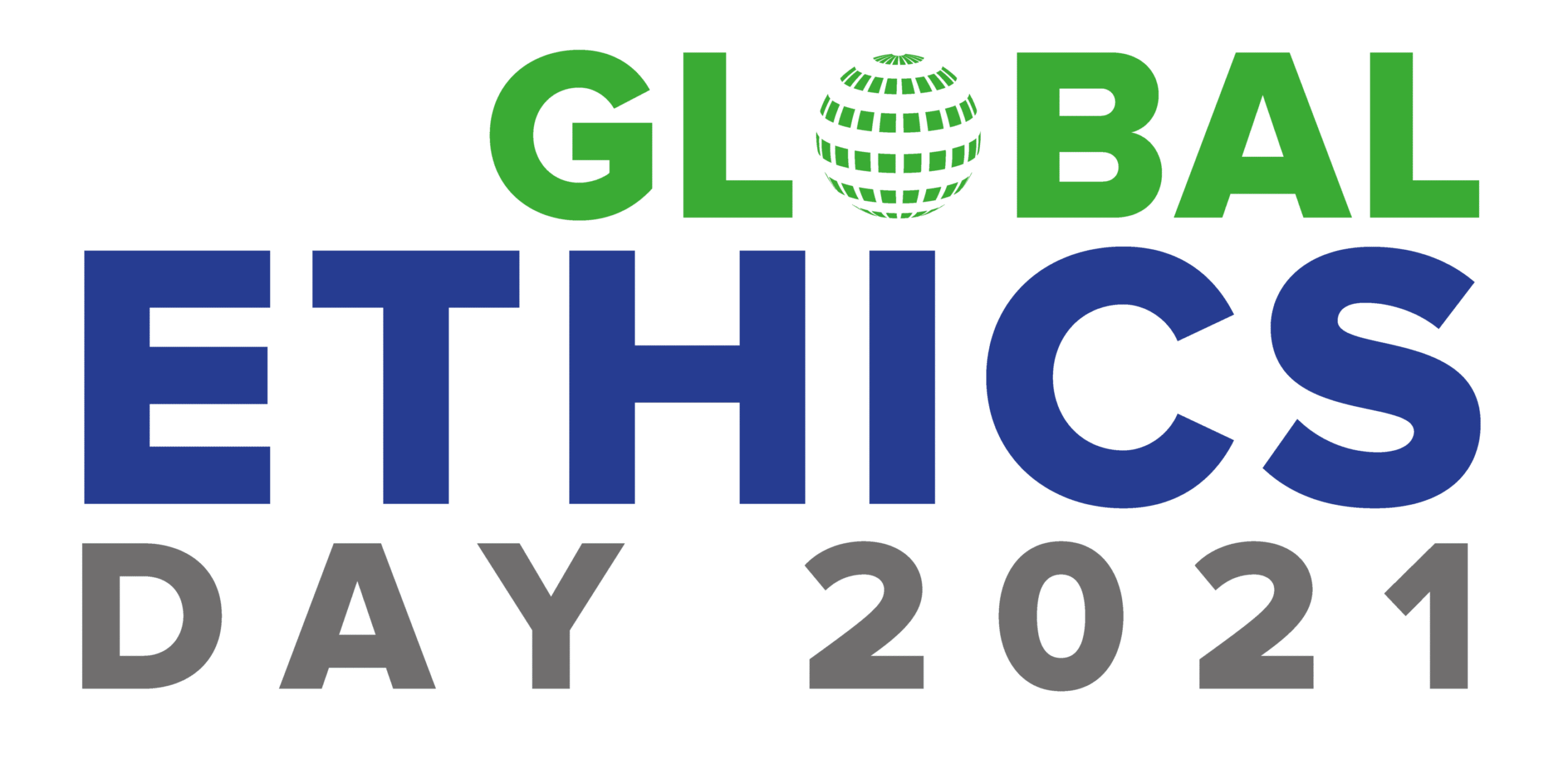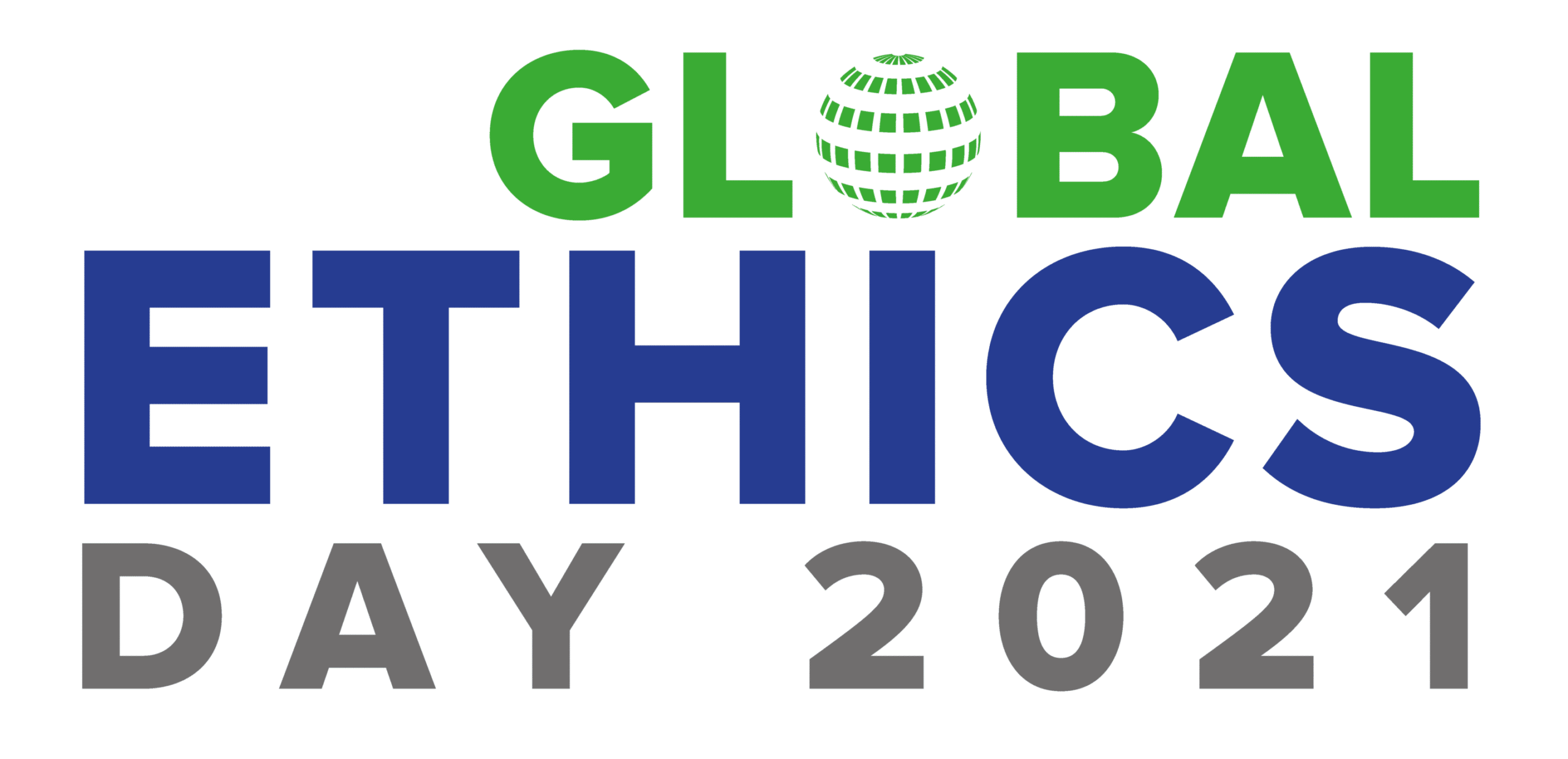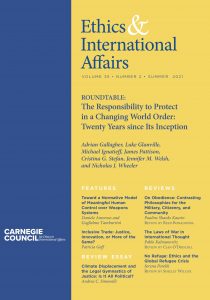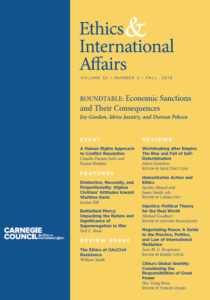
Global Ethics Day is Wednesday, October 20! Created by Carnegie Council, Global Ethics Day is an annual moment to explore the meaning of ethics in daily life and to come together to identify and address the most critical issues facing society. This year, the editors of Ethics & International Affairs, the Council’s quarterly academic journal, are pleased to offer an array of resources for anyone looking to learn more about ethics and some of the key issues of our time. Whether you are interested in global health, climate change, inequality and global justice, artificial intelligence, the changing world order—or all the above—you will find plenty to dig into. Happy reading!
Thanks to our publisher, Cambridge University Press, for helping to make all of the below content free to access through November 2021.
After Liberal Hegemony: The Advent of a Multiplex World Order by Amitav Acharya (2017: Volume 31.3)
Instead of bemoaning the passing of the old liberal order, the West should accept the new realities of a “multiplex world order” and search for new ways to ensure peace and stability in partnership with the rising powers.
Why the Liberal World Order Will Survive by John Ikenberry (2018: Volume 32: Special Issue I)
Although America’s hegemonic position may be declining, the liberal international characteristics of order—openness, rules, and multilateralism—are deeply rooted and likely to persist.
The Liberal International Order and Peaceful Change: Spillover and the Importance of Values, Visions, and Passions by Trine Flockhart (2020: Volume 34.4)
The ability of the liberal order to effect peaceful change is currently hampered because the order is characterized by negative emotions, contested values, and a vision of the good life that is seen as mainly a benefit for the cosmopolitan elite. An emphasis on understanding human emotions is a precondition to sustaining initiatives for peaceful change.
Black Lives Matter: Taking Stock of An International Moment by Reuben E. Brigety (2021)
Black Lives Matter is more than a mere statement and movement. It is a moment of great consequence for the United States and for the world. How we choose to address it will determine how generations to come remember it.
Extractivism, Gender, and Disease: An Intersectional Approach to Inequalities by Cristina Cielo and Lisset Coba (2018: Volume 32.2)
Understanding social inequalities requires a multi-faceted approach. Economic and environmental impacts of natural resource extraction, for example, highlight how gender disparities are exacerbated through the intensification and devaluation of care work.
Ethics and the Foundation of Global Justice by Amartya Sen (2017: Volume 31.3)
With the spread of globalization, issues of cross-border relations have a domino effect; they affect people’s lives in more places than one. If the jointness of problems of justice is a global reality, interactive and informed reasoning is a global necessity.
COVID-19 as a Mass Death Event by Yuna Han, Katharine M. Millar, and Martin J. Bayly (2021: Volume 35.1)
In order to fully understand the politics arising from the COVID-19 pandemic, we need to focus on the individual and collective experiences of death, loss, and grief. Centering the impact of the pandemic on the experience of death and loss directly poses the question of how politics should value human lives in the post-pandemic world, helping us better formulate the normative questions necessary for a more ethical future.
Equity and Vaccine Allocation: Beyond Ethics in Prioritization to Equitable Production, Distribution, and Consumption by Nicole Hassoun (2021)
COVID-19 has exposed massive health inequalities around the globe. In the face of the worsening threats from climate change that increase the risks posed by pathogens due in part to their increased drug resistance, the world must preemptively and collectively address global inequalities before the next pandemic.
COVID-19, the UN, and Dispersed Global Health Security by Sophie Harman (2020: Volume 34.3)
While WHO has been the focus of global attention during the pandemic, the dispersed global health security addressing the crisis is inclusive of the wider UN system, civil society, and epistemic communities in global health. Dispersed and micro forms of health security around the world have accumulated to provide the UN with a more sustainable structure for pandemic response.
Justifying Lockdown by Christian Barry and Seth Lazar (2020)
There are clear and legitimate concerns about whether the relaxation of lockdown restrictions is premature in the Unites States and many other parts of the world. What arguments can be presented for why, given the significant costs a lockdown may impose, it can nevertheless be required?
The Need for Governance of Climate Geoengineering by Janos Pasztor (2017: Volume 31.4)
Keeping global temperature rise to within 1.5–2 degrees Celsius above preindustrial levels is looking increasingly unlikely through mitigation alone. Debates over the use of novel geoengineering technologies highlight the urgent need for forward looking global governance in this area.
Tackling Climate Change: Why Us Now? by Henry Shue (2019)
By neglecting and procrastinating current challenges to climate change, the challenges for our children and their children will multiply and become more complex to resolve. With the same token of courage that our forebearers battled the threat of Nazism, it is up to us to shoulder the challenges and draw the line beyond which climate change cannot pass.
Climate Displacement and the Legal Gymnastics of Justice: Is It All Political? by Andrea C. Simonelli (2021: Volume 35.2)
The future for those displaced by climate change is uncertain, and those most acutely impacted are still unable to access legal remedy for their troubles. Demanding justice for climate displacees is an indictment of modern Western economics and development; it implicates entire national lifestyles and the institutions and people that support them
Fighting Fire with a Thermometer? Environmental Efforts of the United Nations by Maria Ivanova (2020: Volume 34.3)
The United Nations has become the platform for championing environmental rights through multilateral agreements, global conferences, and the mobilization of national and international efforts. However, even though it is true that the United Nations has moved the needle in terms of information, institutions, and awareness, many environmental problems persist.
The Future Impact of Artificial Intelligence on Humans and Human Rights by Steven Livingston and Mathias Risse (2019: Volume 33.2)
Understanding the impact of artificial intelligence on human rights is made difficult by the speed of research and innovation in AI research, the obscurity of what is meant by AI, and the effects of human practices on the new technologies. The authors consider the moral and ethical implications of AI development.
Artificial Intelligence: Power to the People by Heather M. Roff (2019: Volume 33.2)
To understand the benefits and harmful effects of AI, we must obtain a clear understanding of what AI is and is not. With an emphasis on drawing conceptual and definitional boundaries, we should not conflate AI with automation or autonomy and instead keep them separate.
Toward a Normative Model of Meaningful Human Control over Weapons Systems by Daniele Amoroso and Guglielmo Tamburrini (2021: Volume 35.2)
The notion of meaningful human control has gathered overwhelming consensus and interest in the autonomous weapons systems debate. The authors propose a differentiated, principled, and prudential framework for MHC over weapons systems.
Wading Knee-Deep into the Rubicon: Escalation and the Morality of Limited Strikes by Daniel R. Brunstetter (2020: Volume 34.2)
While limited strikes are arguably different from war in that they are more circumscribed, cost less in blood and money, and are less distribute, what they can achieve is also considerably more circumscribed than what is set out by the goals of war. To morally evaluate limited strikes, we need to turn to the ethics of limited force, or jus ad vim.
Thinking about World Peace by Alex J. Bellamy (2020: Volume 34.1)
While the very idea of “world peace” raises incredulity and suspicion, there is a case for taking it more seriously. World peace is something every generation must aim for, because the ideas, social structures, and practices that make war possible are likely to remain with us.
Just War and Unjust Soldiers: American Public Opinion on the Moral Equality of Combatants by Scott D. Sagan and Benjamin A. Valentino (2019: Volume 33.4)
Utilizing an original survey experiment the authors find that the American public judged soldiers who participate in unjust wars as being less ethical than soldiers in just wars, even when their battlefield conduct is identical. Of particular concern is the finding showing that for many respondents the moral license of just cause extends to allow soldiers on the just side to commit war crimes.
A Human Rights Approach to Conflict Resolution by Claudia Fuentes-Julio and Raslan Ibrahim (2019: Volume 33.3)
By focusing and enhancing the design and implementation of peace processes and conflict resolution practices, a human rights perspective can improve the odds of transforming violent conflicts into sustainable peace.
The Reputational Costs and Ethical Implications of Coercive Limited Air Strikes: The Fallacy of the Middle-Ground Approach by Danielle L. Lupton (2020: Volume 34.2)
While policymakers contend that threatening and employing limited air strikes signal resolve to their adversaries, this is often not the case. The same factors that make limited air strikes attractive to coercers are also those that undermine their efficacy as a coercive tool of foreign policy.
Finding Refuge through Employment: Worker Visas as a Complementary Pathway for Refugee Resettlement by Michael Doyle and Elie Peltz (2021: Volume 34.4)
Countries should adopt labor-based proposals to complement humanitarian pathways for refugee settlement. Labor visa pathways provide an opportunity to rebuild refugees’ lives and livelihood, all the while promoting prosperity in the destination countries.
Borders of Class: Migration and Citizenship in the Capitalist State by Lea Ypi (2018: Volume 32.2)
In many recent debates on the political theory of immigration, conflicts between immigrants and citizens of host societies are explored along identity lines. Left out of these discussions is the crucial role that class plays in both distributive and cultural conflict.
Hypocritical Inhospitality: The Global Refugee Crisis in the Light of History by Luke Glanville (Volume 34.1)
One of the justifications offered by European imperial powers for the violent subjection of nonsovereign non-Europeans was those peoples’ violation of a supposedly natural and enforceable duty of hospitality. Today, many of these same powers take increasingly extreme measures to avoid granting hospitality to refugees and asylum seekers.
Human Rights, Global Ethics, and the Ordinary Virtues by Michael Ignatieff (2017: Volume 31.1)
Drawing on research from site visits to eight countries, this essay explores whether human rights has become a global ethic, and, if so, how the concept of human rights influences or structures private moral decision-making.
Human Rights in the Seventy-Fifth Year of the UN by Bertrand Ramcharan (2020: Volume 34.3)
While the consecration of the right to life has made a contribution to the ethics of human survival, the holistic impact of the United Nations’ human rights program has been marginal.
The Universal Declaration of Human Rights at Seventy: Progress and Challenges by Ş. İlgü Özler (2018: Volume 32.4)
While it is easy to be critical and dismissive about the contributions of the byzantine UN bureaucracy, declarations that are endorsed by every single country in the world holds much significance, especially when it comes to human rights.
The post Global Ethics Day Reading List appeared first on Ethics & International Affairs.
Source: Ethics and International Affairs




Be First to Comment